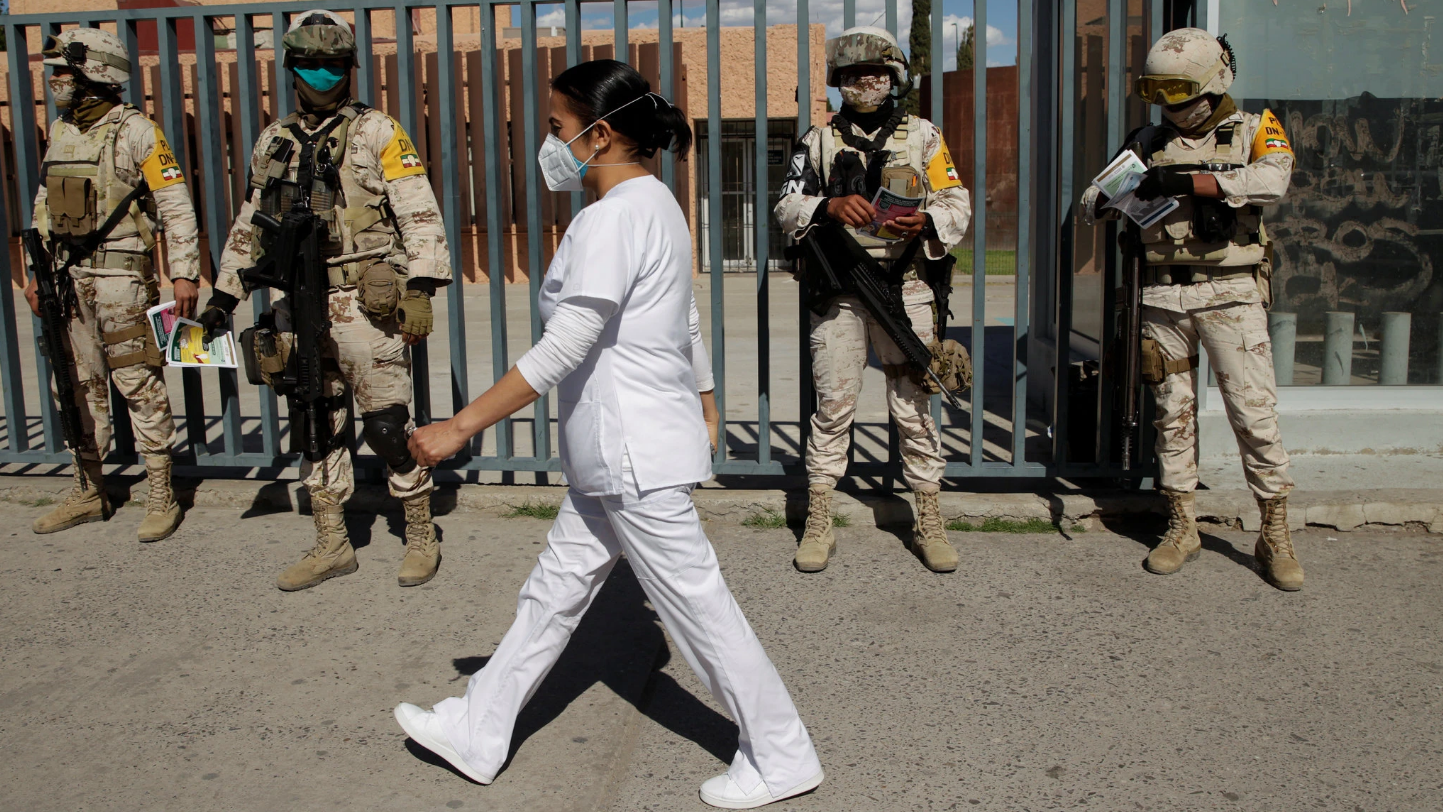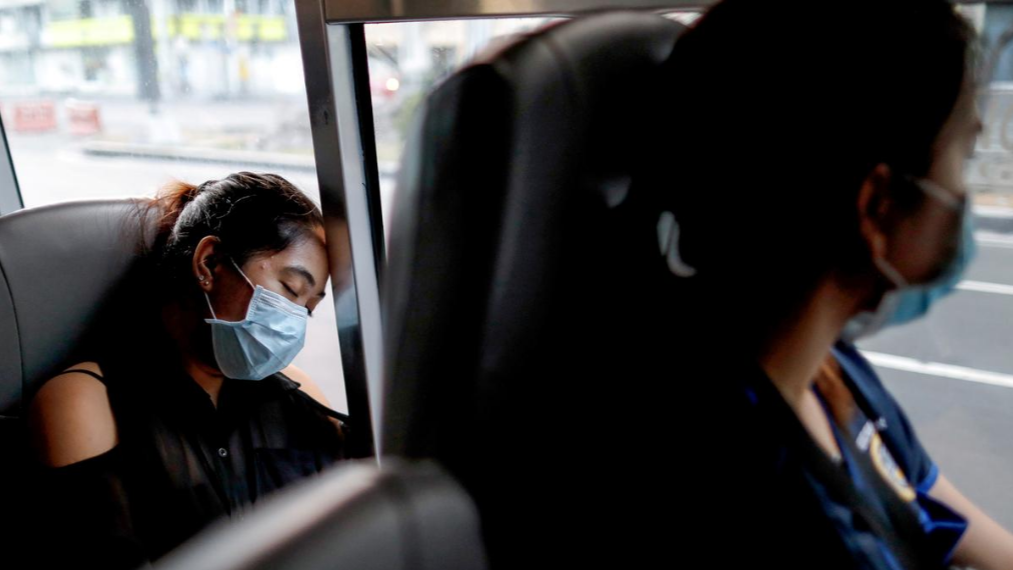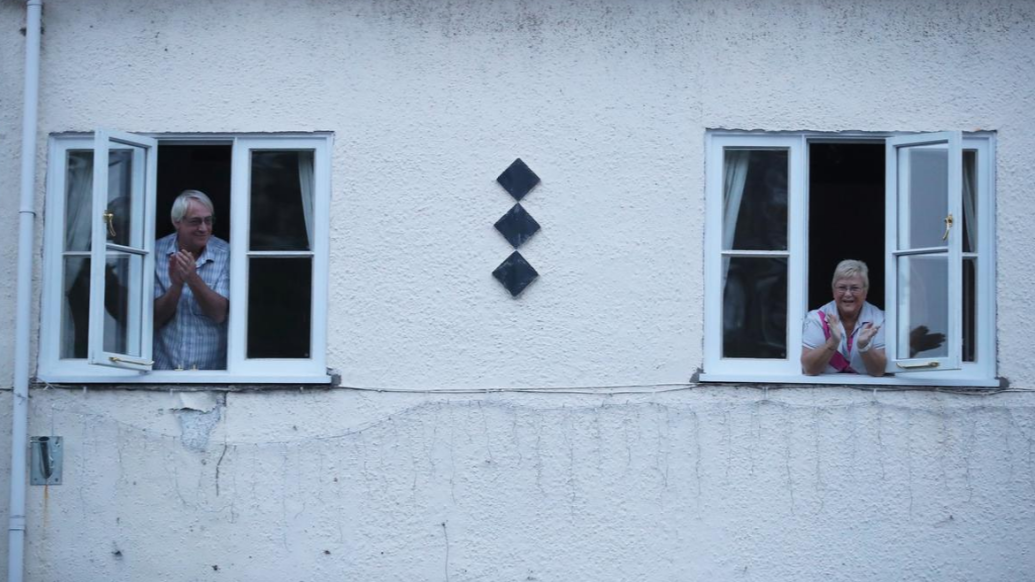
Soldiers posted outside a hospital in Ciudad Juarez, Mexico. As the coronavirus pandemic sweeps the country, dozens of attacks against health care workers have been reported. /Reuters
Soldiers posted outside a hospital in Ciudad Juarez, Mexico. As the coronavirus pandemic sweeps the country, dozens of attacks against health care workers have been reported. /Reuters
Editor's note: This is the 98th article in the COVID-19 Global Roundup series. Here is the previous one.
Since the beginning of the COVID-19 pandemic, attacks and stigma against health workers have continuously been reported across the world. In India, health workers stigmatized as vectors of contagion have been spat at and physically attacked, and in one case a stone-throwing mob chased two female doctors wearing protective equipment in the central city of Indore as the country has the third-highest number of infections globally with nearly 2.65 million confirmed cases.
A report released by the International Committee of the Red Cross (ICRC) on Monday shows that during the first six months of the pandemic there were more than 600 incidents of violence, harassment, or stigmatization against medical crews, patients, and medical infrastructure in relation to COVID-19 cases.
Of the 611 incidents across more than 40 countries, more than 20 percent involved physical assaults, 15 percent were incidents of fear-based discrimination, and 15 percent were verbal assaults or threats. The actual figure is likely much higher as this figure reflects only known incidents.
Maciej Polkowski, the head of ICRC's Health Care in Danger initiative said that this crisis has put healthcare workers in harm's way at a time compounding the already heavy toll they are paying in the pandemic.

A medical worker wearing a protective mask sleeps inside a free shuttle service for healthcare workers following the suspension of mass transportation in Metro Manila to contain the spread of coronavirus disease (COVID-19), in Manila, Philippines, March 30, 2020. /Reuters
A medical worker wearing a protective mask sleeps inside a free shuttle service for healthcare workers following the suspension of mass transportation in Metro Manila to contain the spread of coronavirus disease (COVID-19), in Manila, Philippines, March 30, 2020. /Reuters
In the Philippines, a health worker and his sons were forced to leave home after being harassed, discriminated and cut off from electricity by neighbors. In Colombia, residents obstructed ambulances from entering their town to screen for COVID-19 cases. In Mexico, a medical worker was confronted by five men who poured bleach over his face when he was on his way to work.
They are by no means alone. These are just a few examples among many across numerous countries. Although medical crews have been celebrated in many countries as heroes for bravely fighting the COVID-19 pandemic with extraordinary dedication, not everyone appreciates their efforts.
India's death toll from COVID-19 has surpassed 50,000, and the country is still reporting more than 50,000 cases per day, which has pushed the health system to the brink and stretched medical workers beyond their capacity.
"This atmosphere of fear, which is often combined with a lack of adequate personal protective equipment, is likely to exacerbate significant stress to health workers' physical and mental health and that of their families," said Polkowski.
Some medical workers have become targets out of people's fear of contagion and ignorance by misinformation. "Fear of contracting the disease and the lack of basic knowledge concerning COVID-19 are often the underlying reasons behind violent acts against health care personnel and patients," said Dr. Esperanza Martinez, the ICRC's head of health.

People in Betley, Staffordshire, applaud during the Clap for our Carers campaign in support of the National Health Service (NHS) as the spread of coronavirus disease (COVID-19) continues, Betley, Britain, April 9, 2020. Reuters
People in Betley, Staffordshire, applaud during the Clap for our Carers campaign in support of the National Health Service (NHS) as the spread of coronavirus disease (COVID-19) continues, Betley, Britain, April 9, 2020. Reuters
However, there are also some good examples. Britain launched a nationwide clap to pay tribute to the National Health Service staff in July, a campaign seen in other countries. Some property owners in Portugal are offering free accommodation to health workers who are afraid of exposing families to the coronavirus.
"To protect health care staff, medical facilities and patients from violence, it is of paramount importance to disseminate accurate information regarding the origin and modes of transmission and prevention of COVID-19. Health care workers, patients or specific groups must not to be stigmatized or blamed for the presence or spread of the virus. We need to strengthen our collective sense of humanity if we are to make it through this pandemic," said Martinez.